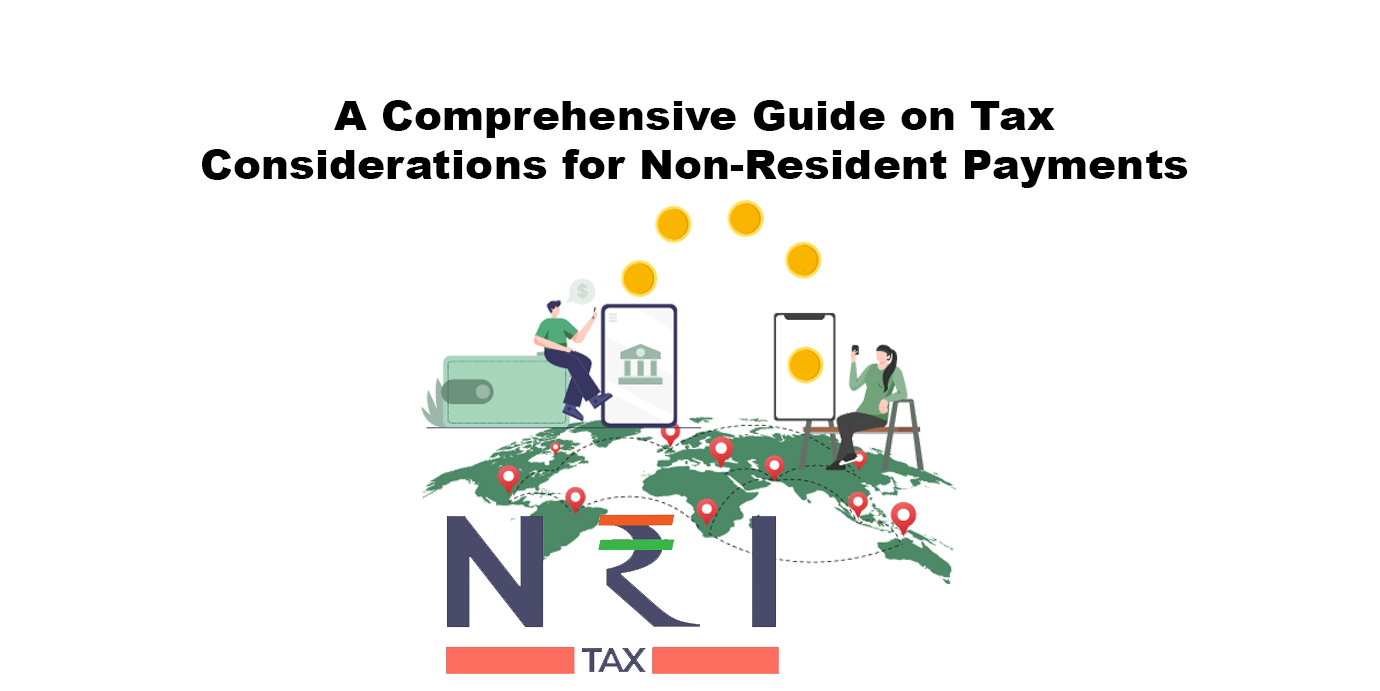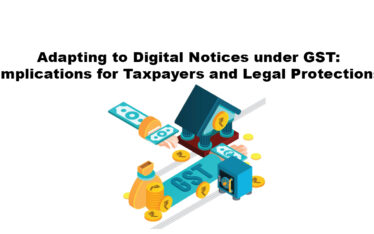In an increasingly globalized world, businesses often engage with non-residents for various transactions, leading to cross-border financial dealings. When it comes to making payments to non-residents, understanding the income tax implications is crucial for both businesses and individuals. In this blog feature, we will deep dive into the aspects of payments to non-residents under the Income Tax regulations.
Who are Non-Residents?
As per the provisions of section 6 of Income Tax Act, a person is said to be a non-resident, if not a resident in India.
Subject to certain exceptions / conditions laid down under the income tax act, an individual will be a resident of India in any financial year if they satisfy the following conditions:
1. If they stay in India for 182 days or more during the financial year, or
2. If they stay in India for 60 days or more during the financial year, and 365 days or more during the immediately preceding four financial years.
Provisions of Section 195 – Income Tax Act
Section 195 of the Act lays down provisions for deducting tax on all the payments made by any person to Non-Residents or to a foreign company, which are taxable in India except for salary or interest covered by section 194LB, 194LC & 194LD.
Payments to non-residents can take various forms, such as royalties, dividends, interest, or other business transactions.
Mentioned here is each type of payment that may have specific tax considerations.
a. Income Deemed to Accrue or Arise in India:
As per the provisions of Section 5(2)(b) of the Act, the total income of a non-resident includes all the income which accrues or arises or is deemed to accrue or arise in India to the non-resident. To check whether the income of the non-resident is deemed to accrue or arise in India Section 9 of Income Tax Act can be referred to. If the income is deemed to accrue or arise in India, then the payer is liable to withhold taxes in India.
b. Rate of TDS:
The rate shall be as prescribed under the Finance Act of the relevant previous year or DTTA (Double Taxation Avoidance Agreement). Many countries enter into DTAA to avoid the issue of double taxation on the same income. These agreements provide guidelines on which country has the right to tax specific types of income. Understanding the relevant DTAA is crucial for determining the applicable tax rate and avoiding overpayment of taxes. The provisions of the Finance Act or the DTAA, whichever is more beneficial to the assessee shall be applied.
c. Permanent Establishment:
Some payments may be subject to taxation in the country where the non-resident has a permanent establishment. A permanent establishment typically refers to a fixed place of business, and payments related to activities conducted through a PE may be taxed locally.
d. Form 15 CA and 15 CB:
A person responsible for making such remittance (payment) has to submit the form 15CA, before remitting the payment. In certain cases, a Certificate from Chartered Accountant in form 15CB is required before uploading the form 15CA online.
The information to be provided for payment to Non-Residents has been classified into 4 parts in Form 15CA:
PART I: Where the remittance or the aggregate of such remittance does not exceed ₹5 lakhs during the financial year.
PART II: Where remittance or the aggregate of such remittances exceeds ₹5 lakhs during the financial year and an order/ certificate u/s 195(2)/ 195(3)/197 of the Act has been obtained from the Assessing Officer.
PART III: Where the remittance or the aggregate of such remittance exceeds ₹5 lakhs during the financial year and a certificate in Form No. 15CB from an accountant has been obtained.
PART IV: Where the remittance is not chargeable to tax under the Act.
Consequences of Non-Complying to Section 195
1. If TDS is not at all deducted, expense under 40 (a)(i) is not allowed.
2. Interest at the rate of ₹1.50 per month or part of month from date of deduction to deposit, should be paid if TDS is not paid within the stipulated time.
3. Penalty equivalent to the TDS amount under Section 221 shall be deducted, if TDS deducted and is not paid.
4. If TDS deducted is short, then penalty shall be deducted which would be equivalent to the actual deductible and deducted amount as per Section 271C.
Navigating the complexities of income tax regulations concerning payments to non-residents requires a thorough understanding of local laws, international agreements, and compliance procedures. Businesses and individuals engaging in cross-border transactions must seek professional advice to ensure compliance and optimize their tax positions. By staying informed and proactive, one can minimize tax liabilities and foster smooth international financial transactions.





